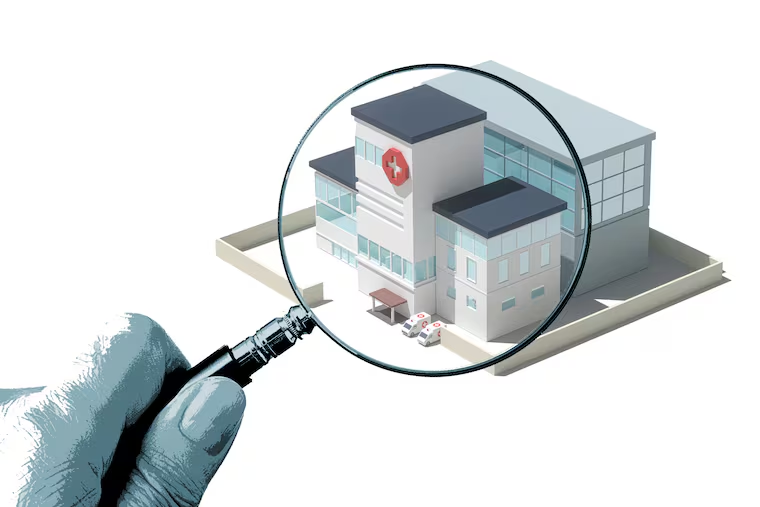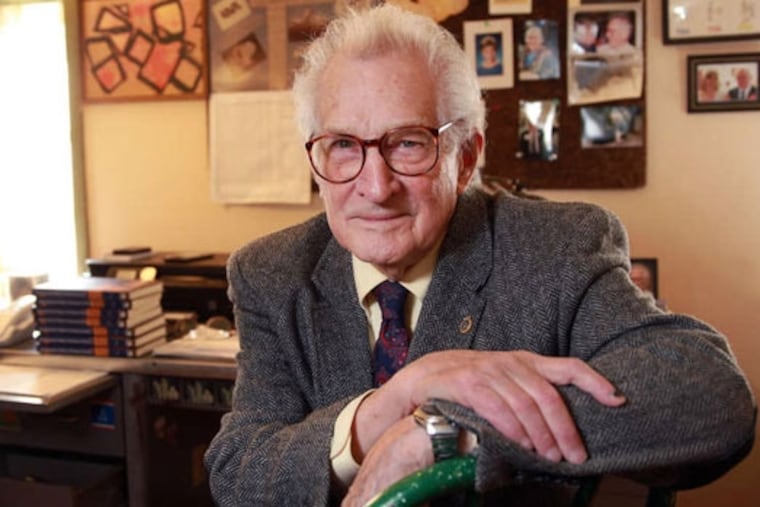Skip to contentJoanna Fong-Isariyawongse, The Conversation
Barry J. Jacobs and Julia L. Mayer, For The Inquirer
Joanna Fong-Isariyawongse, The Conversation
Joanna Fong-Isariyawongse, The Conversation
Barry J. Jacobs and Julia L. Mayer, For The Inquirer
John Lin and Jalpa Doshi, For The Inquirer
BriarRose Edwins and Hayley Goldner, For The Inquirer
Layla Bouzoubaa, The Conversation
Marcia Dunn, Associated Press
Adela Suliman and Kasha Patel, Washington Post
Marcia Dunn, Associated Press
Adela Suliman and Kasha Patel, Washington Post
Noah Robertson, Tara Copp, and Ellen Nakashima, Washington Post
David Ovalle and Cate Cadell, Washington Post
Geoff Mulvihill, Associated Press
Noah Robertson, Tara Copp, and Ellen Nakashima, Washington Post
David Ovalle and Cate Cadell, Washington Post
Geoff Mulvihill, Associated Press
{"ENV":"a39BWmMLZExSTXtYWAtsA3xzfE9jDHAEfGBkCg==","CONTENT_BASE_PROD":"a1l/XXQyY1xTTWAEYAxWA3xzVk93DHRNfGBoQHQyd198YHQHdyJnWHxzWgdjMnAFf2BjW3ccZExoXVJPdCJgAH9weAdgHGAAfHNdW3RUb1x8Y1pAYBxWT3xNVk5jC3BCaGNVWncLf18=","ARC_ACCESS_TOKEN_PROD":"UwVSB1oyWVhSWXcEXTFaA3xjWkBjMmRPfHNkTWMiY118BXhAYDJwAHxjVk93InNef3N0QGAMdEJ/WmROdAx8BXxgY1t3MngHfE14QHQMcAZ/YGRNYyF8QnxdfE1gDHxNfGB3WnYyd158cGtadyJkBXwFd15jDHNea114T2AcdE18Y2NbYAx/WHxzY150MnQHaFpoQGMMd1l8Y2RNYyJ0AXxjdEB3VGAAaGNzWncxfARrWndbdCFgTGtaeEB0HHBNa2N/W3cib1l8c11ed1RsBw==","GRAPHQL_KEY":"fAReTVwhRV5QBGsFYzEFA39NdEB0HFYEfF1SBGMhYEJ8TXxAdCJ4AXxafAZ3DG9Zf2B7XnQMfEJrYHRNYwxwTGtdeEB3DH9cfHNoBnYycExoXXRPYAtvXHxjYAZjIWwGfGBgQHY3CAg=","GATEWAY_URL":"UgVdAmNUBEB8WXNYdy50A39gaEBjMnAGfHBkT3QicAV/YHhAYDJzXWhdfEBgHHQEfF18B2MMcAF8Y1ZPdyF/WXxzYAZ3MXwBfF17WnYhYE1rXWtaYwtgAQ==","GATEWAY_SLS_URL":"a3AITlpUbwF+YGADdAh0A39zVkB2InNffGB0T2AMdEx/Y3BPYzJnXWhdZEBgHHBMfF1kB3cid198Y3xAdAt8BHxjcEB3MX9ZfF17W2MLYAZrWmNbYAtgTw==","FEEDS_URL":"Un9nBF0+WUJ/b2cEWhxaBGgFaAZ0MWxNaF1wB3QiUgRoXXBAdCFgQn9jcE90IWBPfE1zXHQhcAVrY2AGYwtzWHxaaAZ0DHRMf11wA2MMXkJ/c3gGYAxzWH9zfAN0HGxPf017WmMyUVl+YGRAYzJkBH9QDAo=","RESIZER_KEY":"UmB0AlgMf1lrY1YFdjJSA39zZE5gMmRNfHNWTWAyY1h8BWQFdiJWAH9gaAZ0HHwAfGNwBWAMYARoXXxAYzFgAX9NcAd3InxMaFpoTWAMcE9oXXBNdiFwTGtdUk52MXxNaFpoBmMBCAg=","GOOGLEANALYTICS_ID":"VXNdW3c+XgVQc2AHXSJaBXxjd1t3MWQGf2N0TnQieAR/c3NfdCFgBGhdfAN3DHwI","TWITTER_API_TOKEN":"VU1VA3cyVgB8YGtYWiF4A3xaYAR3InwEf1pgBmBUf11/Y2BAYwx8TXxjaE10VGwGf01STXYib11oXVIHdCJvWGtjZE93DHtZfF1nWmALfAF8YHQHYAxWAGhjWk90InQEa2NwT2AxYAdrXVYFYwtvWGhaf19jMXwFf2B3W3dUeABrYHhNdiJzWH9wa1p2MXNYaF1rXnciZAF8cGtdYzFgAGhNd1x0DGQFaAV3XmALf11/c39ediF7XWtdc110MXgEa2B8AndUZEJoWmtfdAtzXn9zWVpgVGwGfHBkT2Axe11+Y39bdAtwBmhgf19jIXAHfHB/WmMLeAZrWmdedCFwAWtwe19gMmQEfmB0AnchbABoBXdcYAt4BmtzcAdjIWRPfmNWAnQiXk9+c3tdYDF4Bmtde1x0IXhMfmNWCg==","GOOGLE_CLIENT_EMAIL":"fF1oQHQxAARoBGAGWwhSA39gfAZ0HGBMfGBoB3Yyc1x8YHRAdDJjXnxgaE93ImAAf01oB2AMZ1hrYHxAdFRjXXxzeEBgDHxCfHN/XnccVkJ/TVoFdBx8BXwFZ1t2InwGfwV/W3cxbAVoXVVfdzFwAH9NZ1t2MW9cfHB7WmAxcAVrWndbdwxsT2hdWgJ0HG9da11jXHYxbAZ8WmgFYyF7WWtzfAo=","GOOGLE_PRIVATE_KEY":"VW9aBXQuY0NVYElfWAxaBmhNZ1t0ImxNaF1zXncidE18c3gEdBxwBGtjeAZ0DGBNf3NrW3QMUkJrc3QFdzJ0T35zfAd3MngFf11SBHcceE98TWRAdzJsT2taZAR0Il5CaGBrW2AMfARoYGdcdDJsBX5jfAR0VHtYfHN3XXQxZ1x/XVoDdyF8QmhaZ15jC2RNaGN0BnQiUkJ/c2gGYDF8TGhje1x0MX9faE1zX2MybEJ/TXAHYAtsAXwFfE1jImNffFp8BHQcd1l/YHhAYFRwAXxaeAVgVG9YfnN/X2AxbE1/WmAEYyJRWWtge19gMWBNfFpjX2Ace1l+YGteYyF7XmgFY152IXNdfGB0QGAyb1x/YHQHYDJ7WX9NdEBjImQBfGBkBGMhb19oYH9eYBxnWHxafE9gMXAAfnNWBWAyYAB/YHtdYDJwAX9aY192IlFYf3NZXXYyd15oBXQCYyJ8AH9NWgN0HGxPfmNgQHRUeEJ/TWNedAxkQnxNd15jMl1ZfGN0BXRUeE98XXBPdxxnWHxjfAJ0IlFZa3NkAnQyWVh8XXdeYAx0B2tzc19jDFZPfmN0TXQxe1l+Y3AEYwtzXGhdZAV3IXtYa2BrXXQydE9rcH9edCJRWWhdVV13DFlYaF13X2MhYE9rc3QFYwtzWXxgZEB2Mn9daAVkBXcyYEJrYGtbYyJjWWhaaAJgVHgBa11gAmAceE1+YGBPYzJ/X2haaANgHGNef2B0TWAycEx/BXxOYzJRWH9gfE1gMl1ea2B4TXcyeAF/YHgCYDFzXHwFYAVjIWNeaFp4BmAMZAB/BXRPYzJRXmtwdARjIX9YfFpjXGAyf1l/cGRNYyJ7Xnxwe1t0IXNda2BgBWAMfAB8TVpAdiF4AX9jWgRjIlYBfHB8BXYiUVx8YGgFYBxzXGhdWVxgMWwBf014BHcybE1/c39edyJkQmtzY1p0ImAFfmNzXXQibE9rc2tcdDJeT35jc153ImwFfGNwA3RUeEJ8c3dbdDF4T39dfANjC2AFfE1VW3QcZE1oTXACdFRsTX9zfAJ0Ml5MfGNwBHcyZ1hoYGgGdAt/WXxzdAZ0MnBMaF10TncMcAdrcGQHdDJvWXwFfE1jC3NZfE1wA2Mhb1x+Y1pAdCFwTH9gYAdgHFFffwVrXGAcZ19rc1YEdjJgTWtaa1xjMlFZaF10AmMyf15/YHhNdwtwAGgFaARjMndZfwVgA2AcdE1/BX9bYyJ8AWtdWVtjIn9YfGBnX2Mye1hoWmdaYAx3XnwFdE9jDHtZa3NZWnQiZ1hrcHtfYwxnXWtwYE92Ml1ZfnBgB2Ayc19+YGgGdiJnXXxweE5jIm9cfmBnX3YyWV9rYGADYDFjX2hgYAZgMXtcaFpoBWMLbE18Y3gGdFRsT2hdaAd0MXBMfHN8TXdUfAZ8Y3QFdBxkB2tjdAJ0DGBMaF13WnQcbAd8YHtfdzJwTXxze1p0IWRCfGN3W2MycEJ+c3BOdwt/WGtjfAR0IntYa11zXHRUeE9rXXBAdwtgBX9wZEBjMmdYf2B8B3Qie19rYGQEdAxkBGgFdANjMnNffnBkT2MMe1l8YGADYwtgQmtdY19gMlZCa3N4BmMMUVl/TXQGYzFnWXwFZ1xgDGQAfwV4QGMyc19/WmRPYFRwTXxNcAJjC3AFfmB3XWMMe1l/WmdeYwt7WWgFdE9jMW9ZfmBoQHYxe1lrWnwCdDFzXn9afAJjC29daAVoA3YxY11/TVoGYDFzXmhgdAZgVGdef11aQGMyY1xrcGtcYDJvXnxzWgRgMmABfwV7WmMxYABoTV1cdiFjX35gd1xjIlFffAV/W3Yie1hrWndbdCJwBHxdYEB0ImAHfmN0BXQyeE9/BWgFdyJgB3xgeE53ImBMfE13WnQyXk9/TXwEYwxdWH5jVV9gDHNYf11wT3QLf1loBWRNdCJWTGhNcAN3MnNcfGBkBXQiZEJ8c3dedyJnWWtgYEB0InAFa1p0QGMMXkJ8c3ROYwxzWGhgaAJ0ImNYfFp0QHchcEx/YGQHYyJzWH9aZ1pjMndefnBoTnccbARrWmgDdAxjWX9wf19jIndZa3N8QGMhfABoWndaYzFnX3wFf15jInRMa2B0BWBUf1hoBXgFdyJjWXwFd15gHHdffmBkBWAcY1x/cGRNdiJ7XH5ga15gMWNefwVjWmALc1h/YHxPYFRjWGtgYE5jIn9Ya2B/XHYhf11/cGNdYwtvXWtdWgNjIlFef3B4B2Mif19rc3deYDF7XXxwf1tjIntZaGNaBGAMXVlrWnRNYyJzXX9zVV10InQFaGNkBHdUYExoXXgGdAxsQnxNdEB0MmxMfE1zX3cMXk1/XXBAdAxeTWtjc190C3xPfmN8BncyVgRoYGhOdDJkQnxjeE50HF5CfF1wQGMxY1x/WntaYzFgT38FZAVjDGBPfF13W2Mxc1h8WndcdzFsTWgFZAdjDF1Yf2BrX3QxZEJ/TXNfYDFjXWhgYEBjMntYfF10QGAcWV9rY3BAYwxzXWhjXV50Ml5Ma3BkQGMMXk9/BWNdYwtnX39dWgd2Mm9Za3BgB2MMY1l8BWtdYzFjX2tafAJgMXwBa110TWMiY1hrcGgEYBx7XHxaeAVgHGdcf01ZXGAMY1l8cGROYDJdXnxaf1t0MW9caE1dXXYic11+YGNfYDJ3XGtwd1xgDH9faFp7XXYxZAFrYHdfYDJ3Xn9NVgVjIl4Bf2NaTnYyf1hoYGBOYzFzX3xjWgNgHGBCfGN8BndUYE1/XXtadyJsQnxzfE50MlZCaF1wT3cyZAdoTXwHdyJeBn5zcAN0DGxPfE14BXQLZAR/TXtcdCJvXX9zY1t0MllYa3N7W2Myf1l/XXhNYwt8TWtjYAZ3C2wEa3B/XmMyWVhoWmhAYwtzWX9gaAVgMmddfmBkAnQxYEJrY3RPYwxvWGtjdE10IngAaGB4QGMiXVhoXXACdDJWTXxwa19jC3tZa3NWB3Yhc15rXX9cdAt/X39aZARjC2NZfGNwTnYifAV+Y3ADYyF7XH9gfE1jIl1ZfGB4T2MxZ1x/BWgEYFR7XXwFaAZgHG9YfHB0BmALY118XV1fYwtjXmtaaEBjIm9ffnB8TmMieAB/BWAGYyJgAHxgYAJjIXNYaGB8QGMhZ15rcHgEYyFnWGhaYANjC29daFp4TXYibAF/WmNbYFR/XHxae1xgHGdfaFp0B3cyXkx+Y3gGdzF4TX9zYE13HHAEa11wA3cibE9rXWQGd1R8TWhNdAJ0MmwGf01VXHQLcE9/Y2AHdDFsT35jc1x0Il5NaF1kB3cxbE9/Y3dbYwt7WXwFZARjDHBCfnN4BWALYAd/Y3deYzFkTGhaZARgHHdZfnN3XGMhcAR8TWQGdAtnX39ddAVjC2BMfAV8BXQhb19+Y11cdyJdXnxafAN0Mllea1pnXnQieEJ/WmQGYDJvXHxzdE10VGdffnBgBWMiWV9/c3NfYBxSBmhjVgZ0IXxNf1poBmMiY15oWn9eYBx3WWtad1pgDGNZfmB7XWAyZ118c39bYyF/XH5weAV2MWAAf2B7X2MLe11+YHwGYwtnX3wFf1xgMn9da3BjX2MyXVh8Y1oFYyF8AX9gYE1gDH9ff01jXWMyZ15rc1YEdjFjXnxgfARgC3Nff2B/XGMLb198TXdcdCJeTX5ze113VHhNa2NoBHQhZAd/XWNddAtkTWtwa1x0C2xNa3N0AnchZE1+YHgGdxxwB2tzfAdjDHhNaF1/XHQxZ1l/YGQDdwx4BH9dd110IWBNfnN8T2MMcE18XWRPYzJ/XX9NYAN0ImNZfmBkQGMyZEx/TX9adAtzWWtaeAVgMmdYf3BnW3cie1h/WmgFYBx/X39aZE53MnddfGBkA2AcfEJ/WmRNYzJRWWtzd15jInwAfHNWBmMicE9rcH9dYzJdWWhaZANgVG9YaGNdXXYyZ1h8cGtbYzFzXn9ddE9gMnNcf1pkAnYhbAB8YHgGYAtsTGhgZAZgDH9eaAVkB2Acb1hrWmtfYwx7XGhadAdjDFFfaF1ZXGAMZ198BXgDdiFvX2gFY152MXtda2B0TmMiWV5+YH9fYyFsAH5gd19gMWAAf1p4TmMye1xoWnQGYDJ4BH9dUgZ0HGxMfnNgTnQybE9+c3RAdwxkT2tzYAR3MWQEfHNzXHQMVk1+c3xNdDJ3WHxzcAR0MnAFfwVkT3Qcf1hoTXAFdCJsTWhde11jMnwFf01kA3QMdE1oWmQFdCJeT2gFaAVjMndYfmNjW3cLf1hrWmQDdDJ8TXxzd1pjMXhNf2NwQHcxcAR/c3QCYBx4Qn5zcAJjMnNfaGBrXnQhYAd/TV1cYwtjX3xwfE9jC3hNf1pjXHQiUV9oWnQEYDJjWWtdeAZgHFFfa3BkB2AyXVh+cHteYwt7XX5gZE9jIlJCfFp0BWMLf1h/WmdcYBx7WH9dWgZjMWNfa2BkQGAyWV9+cHtfYBxdXX5zY19jC2dZfmNZWmMxb19oWngCYDJ/WHwFdE1jC3ABfAV8A2BUe11rYHhPdDJvXmtwfANgHH9ZaGBgBmBUb15/cGQEYDFvXXwFdE90MnBPfF1VXnciYAZrXX9fdFRwTHxzZ190MWwHf11gQHQxYAV/BWgCdFRwQn9zcANjMmRCaE18TmMMdARoYHtbYwxeT3xNcE90In9ZaF1zXmMLY1loXWROYDF7WXwFZE13MnBCf1pnXXQicEJ/cGNeYDJkBH9NY110Mn9ZfnBnW3QybE18BWtcdCJjXWtgdAVjIlFYfAVgBWMyWV9+cHwCYBxwQn5zXV53In9Ya2N0TmMxY198TXQCYyJ7XnxgZE9gC3ABaGBkBHQcY19/YGQDYyF/Xn8Fe1pjIX9da11WTXQyf1lrYHxOYzJjWX5gaANgMm9dfmB0QGMLb19/YHRNYyJRX39weAVgMm9ef3BkA2Mye11rXVoEdiF4AHxgYEBjMW9df3B3XWMhY15/BWBOYAxZXXxwaE12IlFeaE1WB2ALbAB8YGNfYzFzXWhad11gMl4AfnN0TXQMdE9rY39ddzJ0B39de1p0HHRMfE1wBnQcfE18XXdddBxkBn9jUk90ImBNaGN4T2MyZEx/TXBAdDJsTHxzZ1p3MlFYfnBkBnQMeE98Y39bYzJWQnxgZ193MmAEa2NjWnQiXVlrc3wEYwt/WGhaZ1pjInNdf1p0BmMMVkJrY3BNdCJSQn9jcE5jIm9ZfE1WTWAMUVl/cGQHYwt/WH9deEB0MnNZf1poQGAyYAVrcGdbYFRkTHxNdAVgVHNYa1p4B2MiZAB/TV1fYyJeT39gf15gMWNYf2BoQGMxZ1l/TVZPYwxdWWtgYE9gDFFda2B8QGMyeEJ/YGAFYwtnXX9wY1pgC39ca1p7X3YicAF+YHtaYyJvWX5zVgVgDHdcf3BoAmMie15rYGBNdjJ4AH9NVkBjMWBCfF1WTWALYABrYGBOYAxWAH9zWgZ2IWNZa2B3WmALfE9/c3ROdAtgBH5ja1x0IXgEa11oB3QLZE9oTWADdzJ0TH9je1t3C2xNfmNjXHcxbE9+Y3xAdzJkTX5wZ1x0MnhMaFpoBncMb1x/c2ACdDFnWX8Fa1tjMmdZaE13W3QyeAB/XWdedDFkT35zcAR0IWRPaFpoBnQcd1l8TWACYDJRWH9gfE50IWNZaGN/XmMMd1h8cGQHYAx3XXxjd1p0MnAFaF10TmMLZ1hrcGgEYAxeAXxzXVx0IlJNf2NzW2MiY15rWnxOYFRvXn9geE92MXNff118BmMxZ11rWmgDYBx8TX5wYE12MWAAf1pgB2AcY1h/BWQEdDFnX2hafEBjMmwAf01aTWALf19+c3NaYFR/XX9af1xgMn9cfnBoA2MLZ1h+YHgFYFRjXmtgYE9gMntffGB/W2AMeAF/BXgDYyJdX2gFYAN2IW9ea3BoAnYyf15rcGADdCJWQmtjdE10DGwGaE14T3RUZE9rY1Vad1R8QmhddE93C3xPf01/XXQccAdoTWNbdxxsQmhaa153MnRCfHN8BHQicExrY3QGdDJgQn9zZ1t0MlJNa3NwBXQMdEJrY3AGdyJwTWtjZ113DHhMfE14QHQLZE9rUAwK","BLUECONIC_ENDPOINT":"U1pjB2McVgFrYFJAWyFaA3xjWkBgDHNcf3NaQGMMZ1x8cHhPdAxgAXxge1tgMnNdfF1kB3QLYAR/c2NedjJwB2tga153HHxNa2NaBnQyfE18XWdadwt/XWhdYAZgMWNc","BLUECONIC_STORE_ID":"U01ZB1oLTUJTBWBNXQsBA3xwZAZ3HHAGf3NSQHYyeE9/Y1pAYDJ0AHxzcAZ0HHRCaFpkTXcyeEJ8WmhAdDJgAXxjaAd0InRCfF1oTmMyVgR8BXhOdBx4AHxNfE90MngBfwV8Tncie1lrY3NedCJ8TQ==","BLUECONIC_KEY":"UHNjXVpUb0FVTWdYYzFSA3xjWgZgDHBCfGB8B3QicAd8Y1oGYDcICA==","BLUECONIC_SECRET":"f017XHQLQgBVWXtdYFV4A39dfAV0DHwHf3NkQHYyZ158c3wHdjJ4BHxjWk1jC3wHfGBkTXQMbEx8c1YHdAtvWHxNYE90MnNca11ZX3cxf1h8TVYFdFRgAX9NYAZ3InBNa2NWQHcnCAg=","AMP_AUTH_BASE_URL":"a11jQF1UUVtoYElFYyJgA3xwY153InQBfGNwT3Yyc1x8Y3BAYAxjWHxzWV53InNef01oB3dUbE98YHxPdzJgBWtgfE93DH9ffHB7W2AcZ1hrXVpAYFRsBmtjVk13IWAGfFpjWnQxfE1rY2dfdDFsBmtgeE5gMnQEa11ZWndUeE9oTWdfYycICA==","AUTH0_DOMAIN":"a113XVghRUVTb2tdWDJaQn5zZAd0InAFf11gTXQhYE1/TXQCdDFnWWhjdE93Im9Zf113W3QyVk1oTXRPdCFgCA==","AUTH0_CLIENTID":"f3N3BXQhb0Z/BHNcWlVSA39gfAdgDGRPf11gQHQye11/Y1oHYwtgBnxdeE92MmAFfGNoB3Yyd1h8BX9bdzJgBnxjUk1gDGddfGB0BHRUfAdrXWAHdxx4B2tgeEB2MnRNfHN4QHcBCAg=","PIANO_ID":"VWN3RV0hXk1UcGdFXAtgA3xNUgZ3DHwBfGNgTnYyY1h8YGBAdxxwBXxNaAo=","MIXED_CONTENT":"UnNWBV0uZ0ZoXVUEWwtWA3xgZAZjImAFf2B0B3QidEx8Y1IHdxx3WHxzZE9jMnRMfGNrXnQMdAZrXWhPYzJgBX9zVkBgHGAEf2NdWncxfEJ/cHwHdjJ4THxNaE50C3BPa2NVWmAxY18=","VIAFOURA_SITE_UUID":"UE1SAnYhBAVSb38HXCEBA3xwYEB0HHdYfHN0QHYic1h/cGAHYDJwAHxNcAZ0In9caF10BGMiUV98WmBNYwxkB3xNaE1gHHRPfF1oTmAyUVh/TXgFYBx8QnxNVVp0DHwGfF1wTnYie158TVIFdAxsTQ==","GOOGLE_CLIENT_ID":"a29/QF0IWVpoWnsGXQxWA3xweE93DHBMf2NWBmMydAd8cHhPYzJ0QnxgeAZjIWAGf3BjWnQxbAZ8cHRPdxxzWHxgfEB2InhMfHNdW2Mxb1xrWntadzJ7WWtgZE5jC2ABfF1jWmMMbAR8BWhOdwtgAXxjY1pgVGBPa2B/W2AycEJrYGtfdDJ0TWtzVVpjC2QGa2NrXXccdARoTXxOdBxzWH5jZ113MnNYfHN/XXcMc11oTXxPYzJwB3xwYEB0MmQFfGN4QGBUZAZ8c3RAdyJwBA==","AUTH0_BASE_URL":"VG9VR1wxf0NrWXQEWwsBA39jZE90InQGfGNwT2MMYE98Y3hAYyJkAHxgYAZ2MnAEfE1/W2ALb15/Y11bdzJzWWtdcAd2Intea2N4TXYie158Y2RAdwx8BXxad1tjC2BCaGN/WmAxbABrWmAK","CHARTBEAT_DOMAIN":"a39rQ1oxWUdVcGBAYBxaQmhjdE10IWwEa11gQHQheEJrY3NedyFjWXxzdE10InAI","G_OPTIMIZE_CONTAINER_ID":"aAV7WFwhb0FoXXgCYxxWA3xNaE5gHGAEf3N4BWAce1h8TXxAdDJvWHxwaAR2NwgI","G_TAG_MANAGER_CONTAINER_ID":"Un97WGMicE1rcGNbW1RgA3xdYE1gMngAfE14TmMMb15/Y2RNdxx7XXwFdAo=","SF_CLIENT_SECRET":"f1p3TVoub0RSBXwFdiJaBn9zZAZ0HHQFaGN0QHcydAVoY2dadxxSBmhjUk13MWxNa3NjW3QMZExoY3hNdFR4Bn9zVV50MWBPf018A3QcXk9oY3NedDJ4T39zdAJ3C3wHf118TnQyZExrY3dadFRgBX9dc193MnwHfF1rXnRUZE1+Y3dbYwt8TX5jdE10IlYEfE1kB3cxfE1/BWdedCJ4TWhNdE10IXhNf3NjXXciXgBrc3NdYwxsQmtQDAo=","G_RECAPCHA_V3_KEY":"VHAEB1tUAF5SBX9fXQxeA3xdVk53IndefHBgBXYidE98XVpNdDJ0T3xNUgZgHHwEf3NoTXYyeE98TVpAdDJ7XXxzfEB0HHdYf01zWmMLYAVrWnxPdxx3WHwFeAd0MnRCfHNgTnYyZ1h8c1JNYFRkB39wd1t2MnAFfFpgCg==","G_RECAPCHA_V2_KEY":"fmB3B3Q+UV9/f2gFWgtkA39NfEB3MntZf2N8TXcycE1/Y3BOdzJgTHxjdE10HFYFfwVoTmMMbAF8Y2BOdDJWAHxweAZ3DHhCa2BoBnQcd1h8c2dedCJwBXwFfEB3DHAEf2N8TmMicE9oXXBAdzFkBX9Nf1p0InBPf1p0Cg==","GROWTHBOOK_CLIENT_KEY":"a3B7R3QxXUN/BHwHdwtSA39gZE9jMnwEf2NgBmMMc1h/BWhAYAxsBX9zcAZ3MnNff3BoTmMidAF8Y3RPdiF/WQ==","SOPHI_HOSTNAME":"fwVJTWMxb0xUb3cEYyJeA39jWkB2MnBNf3B4B2MMcAR8c3xPYzJ0AGtjUgdjMmRCa2NaQGMyc11rY3wK","HTL_SCRIPT":"UG9BAlsufE9TBXtfWDJaTX5jdAN3MmxCfnN8QHcyXk1rXXdbdDJ8BX9zdE90IWxPfmNnX3QidAV8cGdedzJjWXxdd193MndYfmBoQGMxf1h/TWADdAxeT3xNZ110C3tZfHBoBGMMXkxoYGteYAt4T39aaE5jDFlYfmN/XHQcVk1oYH9cdAxwAHwFf1pjC3AI","LIVEBLOG_WS_SERVER":"a1pZQGMhZwFVXVIDYAxaQn5zc1x0MnwFaGNjXHQxbEJoTWQDdyJvWXxjdE90MW9Yf2NwAnQyeEJ/c3AEdyJdXGtdd1x0DF4Ef2NjWnQcb1loBWQCYwxSCA==","SOPHI_SCRIPT":"VFpnWnRUDU9VTXAGdBxaQmhjcAR3Il5CaGNzXnccVgVoXXNcdCJeBn9dYEB0DFZCfmNwBXQxYAVrXXAFdyF/XGgFe19jDGxMa2NkAmAMXk18YHdeYwxRXHxNVV5gDHhPa3BoB2MMc1xoBWtcYDFwTGtzVVxgC3NcaE17WmMxY1h8TVpNdCF8AHxdeE9gMWNdfFp3X3QMZE9+cHwEdjFzX3xNXVpjIl1daEAMCg==","STATS_WIDGET_CLIENT_ID":"a1prXWAxe0N+Y2hAdCFCA3xjUkB2MnBCfHBkB3cycAV/Y1IGdjJgBX9zfE92InNZf2NkT2AMcEJ8Y1JPYyJkTX9wd150Indc","_id":"f8e32dc0b425f0d4523b6db291019c237921af128665cb014b7a71af2017d345"}























